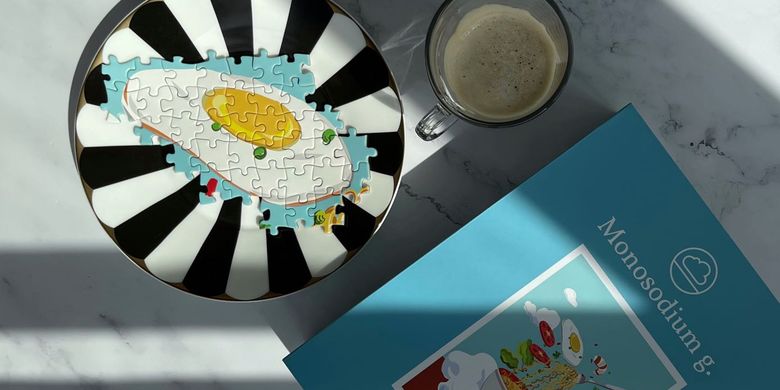KOMPAS.com – Many people think puzzle is just a game for children.
In fact, a lot of research has shown playing puzzles also has a myriad of benefits for adults.
In addition to encouraging happiness, playing puzzles can also reduce stress, create a sense of calm and serenity. Of course, all of that helps improve mental health.
According to the data Cloudy Fields, a puzzle company from Indonesia, here are various the benefits of the puzzle for mental health:
1. Reduce stress
Playing puzzles makes the mind focus on the game activity that is being carried out.
This is similar to the activity of meditation which has been shown to reduce anxiety and extrenal stress.
With that, the mind will be calmer and more peaceful.
2. Reduce loneliness
Research in The National Center for Biotechnology Information (NCBI) states that solving a jigsaw or puzzle can improve cognitive function and provide intrinsic motivation.
In addition, puzzle games can be activities carried out in groups that can unite our emotional bonds with others.
In this way, the loneliness that is within us will be lessened.
Research from Mental Mind UK also shows that loneliness can have a negative impact on mental health.
Through the media of puzzles, we can overcome loneliness and improve mental health.
3. Give yourself a break from gadgets
2017 research from The Royal Society of Public Health proves Smartphones and social media have a huge impact on our mental health.
By playing puzzles, we can take a break or shift the focus of our minds from gadgets.
4. Improve brain power
Playing puzzles helps improve our ability to focus.
In addition, the activity of putting together the pictures on the puzzle can also encourage dopamine production.
Dopamine is a neurotransmitter that regulates mood and affects concentration, motivation, memory and motor control.
5. Reducing the risk of Alzheimer’s
Research shows that people who do jigsaw puzzles or puzzles and crossword puzzles have a longer life span.
Their risk of developing Alzheimer’s is also smaller. Alzheimer’s is a brain disorder that reduces a person’s memory.
Research in the Archives of Neurology also proves that playing puzzles can stimulate the brain and ward off Alzheimer’s marker plaques in the brain.
– .


